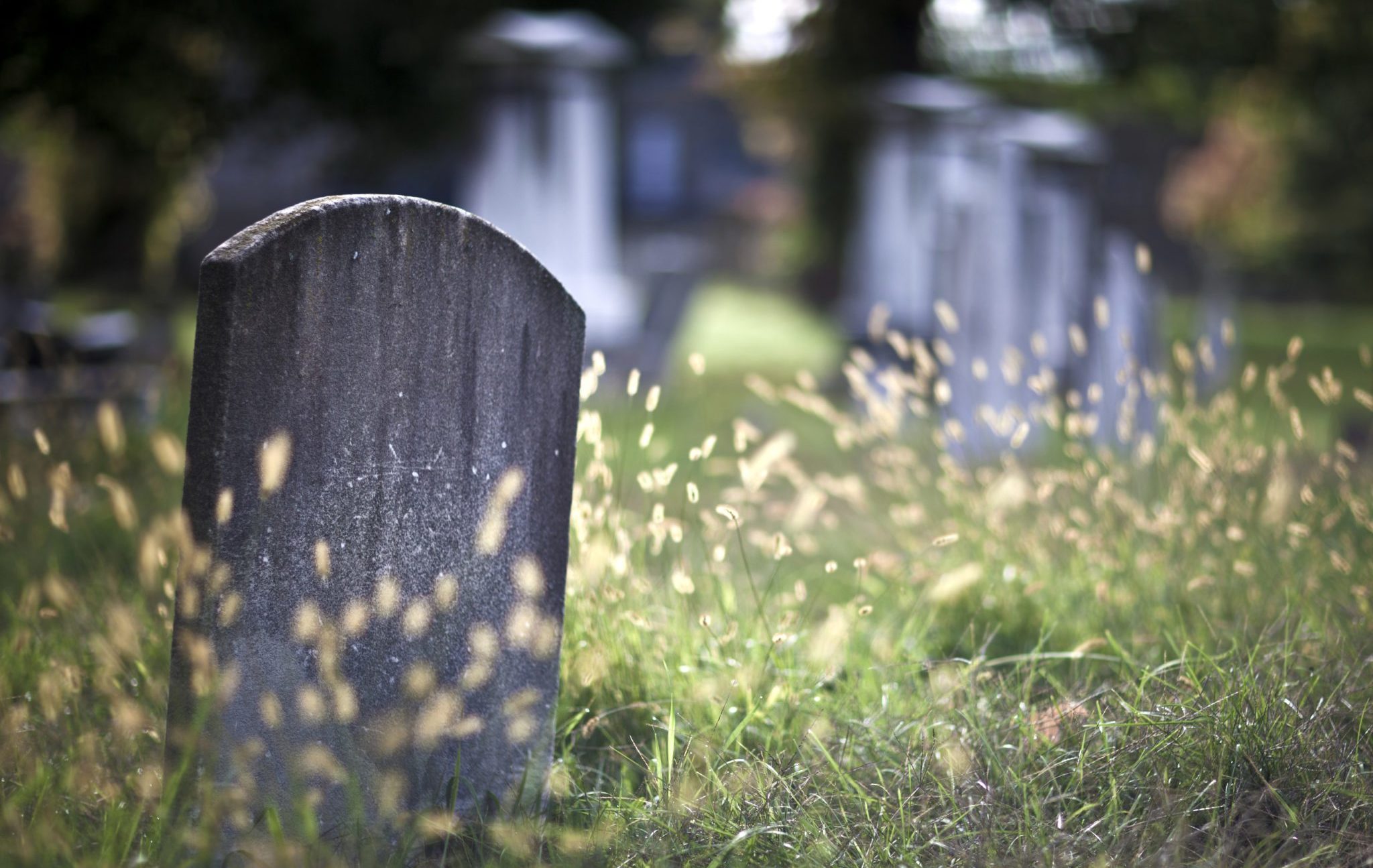Grave Matters

The older I get, the more dead people I know.
I’m not yet keeping pace with my late Italian grandmother, who lived 94 years and scudded for the last twenty between funerals, wakes, and bedsides. But I do drop by cemeteries now and then, as if to ward off indictment by The Replacements:
The ones who love us best are the ones we’ll lay to rest
And visit their graves on holidays at best
Some of those I visit I never knew in life. For instance Vince Maney, the only boy from my town ever to play in a Major League Baseball game. And I do mean “a” game. Vince played a single nine-inning tilt in 1912, going 0-2 and making an error for the undermanned Detroit Tigers. But he wrote his brother, “I played shortstop and had more fun than you can imagine.”
This summer I left a Tigers decal on Vince’s untended and moss-covered grave. For he is our own Moonlight Graham, the one-game-playing doctor from Field of Dreams. (I recently watched that film for the first time in decades. Is there, in the entire history of American cinema, a more heavy-handedly cringe-inducing scene than Amy Madigan bawling out a gym full of rural Iowans for censorious prudery?)
A few weeks ago I made the necropolitan rounds in Rochester with a friend whose remarkable versatility can be inferred from his dual roles as NPR host and basketball play-by-play man. We kicked the day off with a ramble through Mt. Hope Cemetery, whose celebrity headliners are Susan B. Anthony and Frederick Douglass. But we paid our particular respects to Private Edward Crone Jr., the saintly quietist model for Billy Pilgrim in Kurt Vonnegut’s Slaughterhouse-Five, before wending our way over to the Crapsey family plot.
The patriarch of this unfortunately denominated clan, the Reverend Algernon Crapsey, was the defendant in the most famous heresy trial of 20th-century America. The good reverend had denied the Virgin Birth, the Trinity, and the Resurrection—no big deal in empty Episcopalian churches today, but a real scandal in 1906. His ecclesiastical trial was moved to Batavia because, it was thought, the intellectual winds blew very lightly in our drowsy burg.
Crapsey was found guilty and defrocked. But our quarry on this trip was not the old heretic (I guess you know the truth now, eh, Algie?) but his daughter Adelaide, a tubercular poetess and mother of the form known as the cinquain. We read several of Adelaide’s poems over her modest stone upon which I left a penny, as is my wont, not out of innate cheapness but because I was moved long ago seeing such tokens in the West Point Cemetery.
At the other end of the Flour City we paid our respects at Holy Sepulchre to Louise Brooks, the Kansas chorine turned seductive star of the silent screen, the immortal Lulu who picks up Jack the Ripper in G.W. Pabst’s Pandora’s Box (1929).
Louise, who drank her life away (and wrote a wonderfully astringent memoir, Lulu in Hollywood) in Rochester, has perhaps the most fervent cult following of any silent siren. My friend Bill Clune, the highest-paid male model of the Mad Men era, used to drop by her dingy apartment now and then, but Bill told me that he could never get away from the old windbag. When I relayed this to a friend, a votary in The Church of Louise, he was aghast: “She was casting pearls before swine!”
In the darkness on the edge of my own town I leave a shiny cent for my landsman John Gardner, the novelist. He lies equidistant between my great-grandmother, who died giving birth in the influenza epidemic of 1918, and a friend’s daughter who was murdered—shot in the head in cold blood—by her boyfriend on a romantic getaway.
God and man, thy ways are inscrutable.
I can’t leave Grandview Cemetery without saying a few words to my friend Peter, gentle soul and hoarder, whose car I now drive and whose home shelves were stocked with thousands of paper clips. (If you’re ever short of paper clips just lemme know.)
And I always give a fond wink to Mammo, barfly mother of my dear old pal Mike. Mammo used to buy our underage set beers at a friendly dive on the other side of the tracks. Don’t tell Karen.
William Cullen Bryant wished that he might be buried in “flowery June, when brooks sent up a cheerful tune,” and “betrothed lovers,” the “idle butterfly,” and weeping friends might make merry by his grave.
I don’t know about that, but feel free to anoint mine with a local beer or a Muckdogs sticker. Not for a good long while yet. I hope.
Bill Kauffman is the author of 11 books, among them Dispatches from the Muckdog Gazette and Ain’t My America.